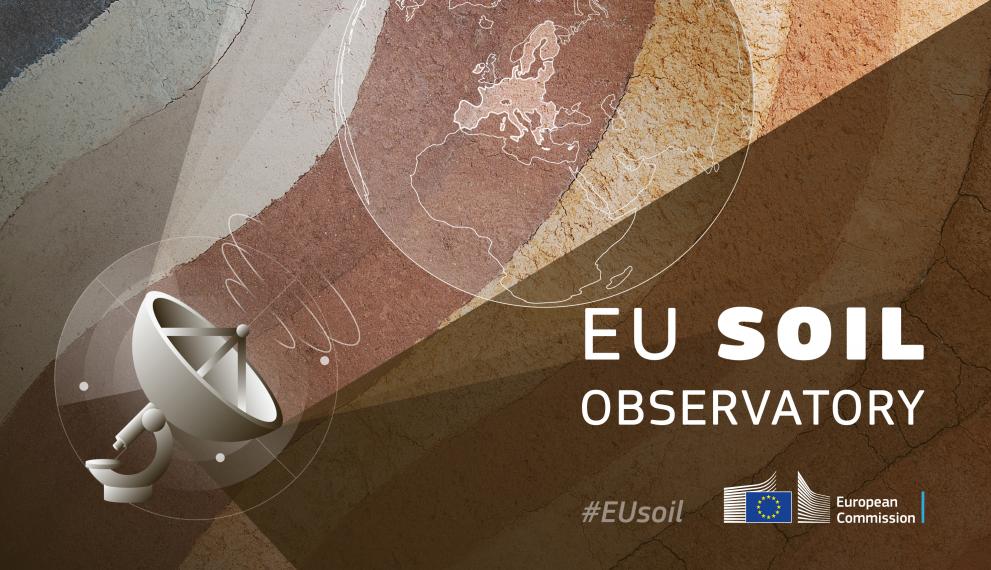
A proposed Horizon EU mission provides the blueprint for setting Europe on a path towards sustainable soil management.
One of the proposed targets is to make sure that at least 75% of all European soils are in a healthy state by 2030.
The EU Soil Observatory launched today will monitor the progress towards the achievement of these goals.
The proposed EU mission in the area of Soil health and food - entitled 'Caring for soil is caring for life' - contains the ambitious goal of ensuring that 75% of soils are healthy by 2030 and are able to provide essential ecosystem services.
Following the official approval of the proposed mission, the new EU Soil Observatory will provide the necessary data to monitor progress towards the European soil health objectives and targets, with the ultimate goal to improve soil management and halt soil degradation.
Speaking during the launch event, Mariya Gabriel, Commissioner for Innovation, Research, Culture, Education and Youth, said: "Research will be key to addressing knowledge gaps and providing solutions to the soil health challenge before us. The new EU Soil Observatory will further expand existing soil data and monitoring efforts. It is a first practical step towards implementing the proposed mission in the area of Soil health and food. I am convinced that this will be a major step in our joint efforts to halt and reverse soil degradation."
Janusz Wojciechowski, Commissioner for Agriculture and Rural Development, said: "I welcome the launch of the EU soil observatory, an important step in making information and data on soils available to all. Soil health is increasingly in the spotlight, highlighting its importance for food security, clean water, biodiversity and for better coping with climate change. Research and innovation will be crucial in finding solutions which can be tested, replicated and taken up on the ground. Here the proposed EU mission on Soil health and food, in combination with the Common Agricultural Policy, will be a powerful tool to promote sustainable land and soil management which delivers wider benefits for society."
A coordinated effort needed to reverse a negative trend
Life on Earth depends on healthy soils. They provide us with healthy and nutritious food, fibres, energy and clean water. Soils are also important for biodiversity and regulating the planet’s climate. Simply put, healthy living soils keep us, and the world around us, alive.
And yet, based on a joint assessment by the Mission Board and the JRC, over 60% of all European soils are in an unhealthy state.
Unsustainable soil management practices, growing population pressure, changes in consumption patterns and climate change are all contributing to soil degradation.
Once lost, soil cannot be recovered within a human lifespan. It can take hundreds of years to produce 1cm of soil.
Several European and global reports have highlighted the urgency to tackle this challenge before a large part of our most fertile soils are lost.
The urgency of the situation calls for a coordinated effort across EU Member States, policy areas and different stakeholders to reverse the current negative trend.
The Soil Observatory will bring together EU and national monitoring data
The EU Soil Observatory is a dynamic platform, which will provide European Commission services and the broader soil-user community with the knowledge and data needed to safeguard soils.
The Observatory will contain a shared soil information system that joins the on-going soil monitoring activities of the European Commission, like the LUCAS soil programme, with national soil-monitoring systems in EU Member States.
This will help to streamline the regular reporting on the status and trends of soil health in Europe.
The Observatory will be hosted by the JRC, which has a long-standing record of providing policy-relevant soil data and information, both at European and global scales.
The Observatory will also support citizen engagement activities and promote soil literacy to raise awareness of the societal value of soil.
The JRC will work in close collaboration with the EU Member States, European Agencies and relevant international organisations to develop synergies that further strengthen the soil monitoring capacity in Europe.
Related Content
Details
- Publication date
- 4 December 2020
